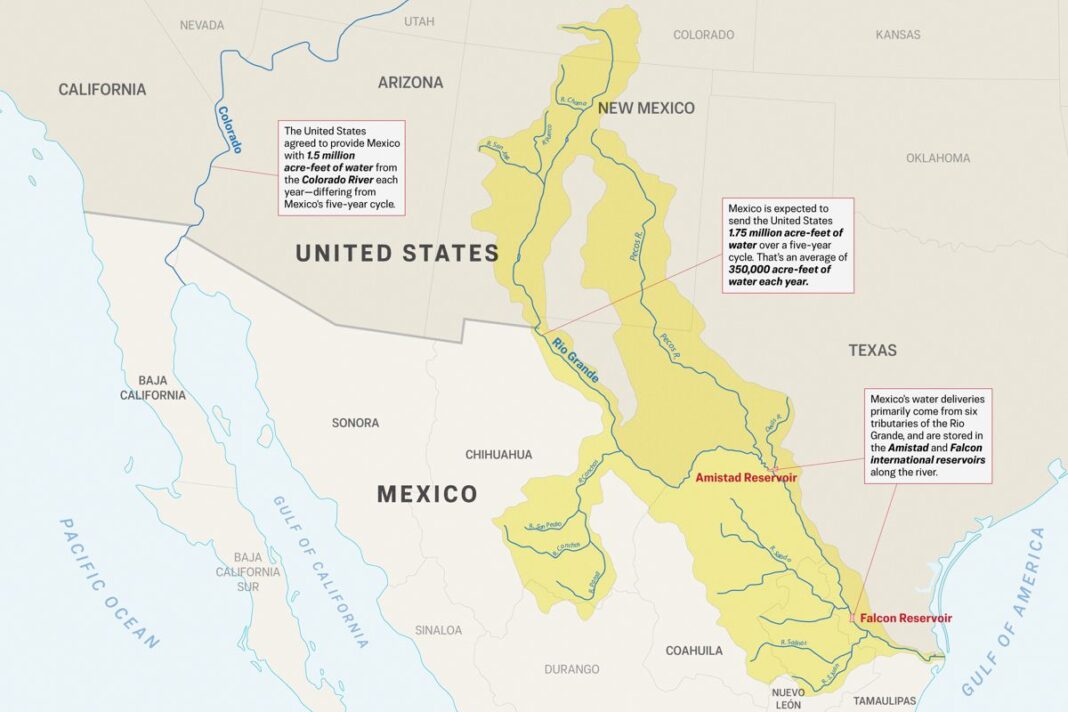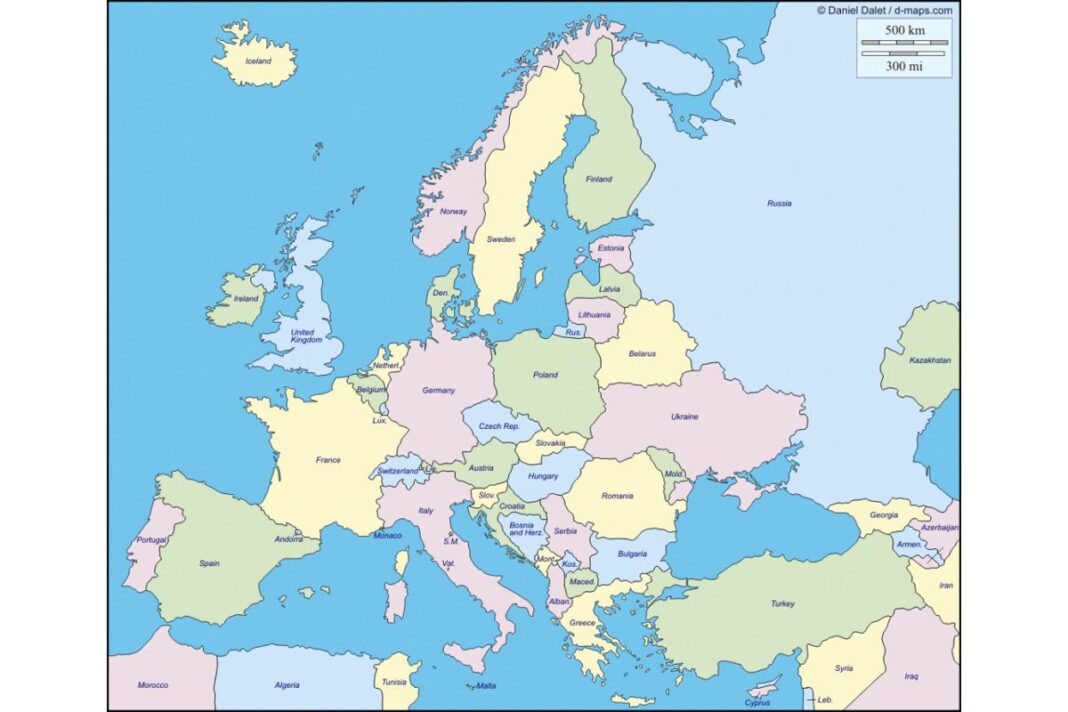Drought, population growth, and decades of lax treaty enforcement have come to a head as the United States and Mexico tussle over water deliveries.
Mexico’s delinquent water deliveries, in violation of an 81-year-old treaty with the United States, have exposed years of “blind eye” policies, rapid population growth, and hydrological changes, according to an expert at the U.S. Army War College.
Evan Ellis, research professor of Latin American studies at the college’s Strategic Studies Institute, told The Epoch Times that recent tensions over Mexico’s delinquent water deliveries have come from “years of looking the other way” on the part of the United States.
U.S. President Donald Trump has requested that the United States’ southern neighbor honor its obligation to deliver 1.3 million acre-feet of water to Texas. The amount totals almost 70 percent of a five-year water commitment that’s due in October.
“Just last month, I halted water shipments to Tijuana until Mexico complies with the 1944 Water Treaty,” Trump wrote in an April 10 post on his social media platform, Truth Social.
Under the reciprocal agreement, Mexico is expected to send the United States 1.75 million acre-feet of water over a five-year cycle. That’s an average of 350,000 acre-feet of water each year. The water deliveries primarily come from six tributaries of the Rio Grande, and are stored in the Amistad and Falcon international reservoirs along the river.
One acre-foot of water—one acre of water at a depth of one foot—is roughly enough to fill half of an Olympic-size swimming pool. Mexico’s average annual obligation is enough water to supply 700,000 to 1 million Texas households for a year.
In exchange, the United States agreed to provide Mexico with 1.5 million acre-feet of water from the Colorado River each year—differing from Mexico’s five-year cycle.
The Tijuana shipments that Trump said were halted were part of a non-treaty water request from Mexico.
The U.S. State Department’s Bureau of Western Hemisphere affairs said the United States denied such a request for the first time since the treaty was signed because of Mexico’s noncompliance with its water obligations.
“Mexico’s continued shortfalls in its water deliveries under the 1944 water-sharing treaty are decimating American agriculture—particularly farmers in the Rio Grande valley,” the State Department wrote in a statement on social media platform X on March 20.








